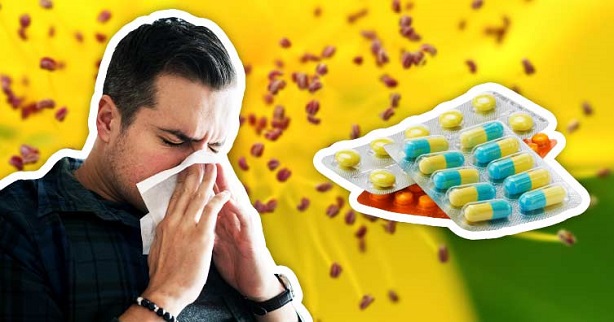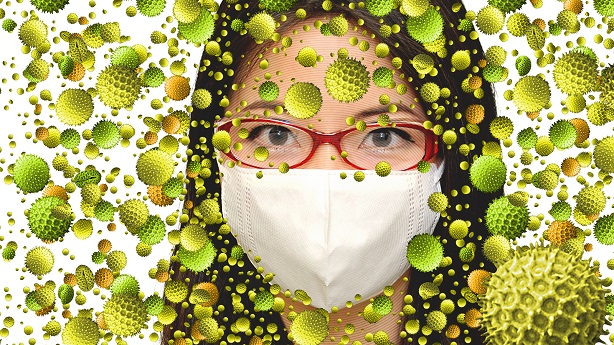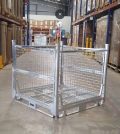Everything You Need to Know About Treating Hay Fever
Although it is not considered a life-threatening illness, allergic rhinitis can really disrupt your daily life. This allergic reaction is commonly known as hay fever. Though it is not caused by hay and a fever is not one of the symptoms, back in the 19th century, it was thought that this reaction was caused by the smell of hay. The term ‘hay fever’ became popular and it is still used today when referring to the condition.
Contents
What Causes Hay Fever?

The reaction is caused when the allergens come in contact with your nose, eyes, mouth, and throat. The most common allergens triggering the reaction are the following:
- Pollen
Plants produce pollen during different times of the year. For that reason, this allergic reaction can be seasonal or perennial. A perennial allergic reaction lasts all year long.
- Pet fur and dander
Animals shed skin, known as pet dander, which is unnoticeable and can cause an allergic reaction.
- Dust
Tiny dust mites are also present in our homes at all times and can be the cause of hay fever.
- Fungi
Fungi or mold can be found in the damp areas in our house or even outdoors.
What Are the Symptoms of Hay Fever?

The most common symptoms of hay fever are the following:
- Sneezing
- A runny and blocked nose
- Itchy and red eyes (also called ‘allergic conjunctivitis’)
- Itchy throat
- Itchy mouth
- Coughing
The less common symptoms of hay fever include:
- Headache
- A decreased sense of smell (also called ‘anosmia’)
- Earache
- Fatigue
How Is Hay Fever Treated?

While there is no cure for hay fever, you can find a variety of over-the-counter medications to help you alleviate your symptoms. Relief can be found in the form of hayfever tablets, capsules, nasal sprays, and syrups.
You can treat hay fever with certain medications.
- Antihistamines
When your body comes in contact with something that it deems harmful for your general health, chemical substances called histamines are released. Histamines expand the blood vessels, which causes inflammation. Sometimes the immune system mistakes a harmless foreign substance as dangerous and thus an allergic reaction occurs. Antihistamines block the histamines which your body releases, so they are used to reduce the symptoms of your allergic reaction.
They treat symptoms such as sneezing, a runny and blocked nose, itchy and red eyes, and itchy throat.
If you are buying antihistamine hayfever tablets, make sure they have some of the following ingredients: desloratadine, cetirizine, loratadine, fexofenadine, and others. Some types of antihistamines cause drowsiness, so it is best to take them before going to bed. Avoid driving and operating heavy machinery if you have just taken this type of antihistamine. Although some types of hayfever tablets don’t have this side effect, it’s best that you check the product description first before taking them.

- Corticosteroids
Corticosteroids are another type of medication which can be used to treat allergic reactions. Much like antihistamines, they are used to reduce inflammation as well as suppress the immune system. They basically suppress the proliferation of white blood cells and antibodies. Besides hay fever, they are used to treat asthma, lupus and other allergies. You can find corticosteroids in the form of tablets, mouth or nasal sprays and creams. Look for nasal sprays or tablets containing the following ingredients: beclomethasone dipropionate, mometasone furoate, budesonide, and others.
Corticosteroid nasal sprays treat the symptoms related to your nose, such as sneezing, a runny and stuffed nose, and itchiness. However, nasal corticosteroids should be used for several days before they can have any effect. So, don’t give up on your first try! Consult your pharmacist when it comes to the right dosage and avoid using them for more than four days in a row.
- Decongestants
Let’s not forget the importance of decongestants and the effect that a runny nose can have on your sleep and mood. As we ‘ve mentioned, due to the allergic reaction, your blood vessels are swelled. Decongestants work by narrowing your blood vessels. When the swelling is decreased, it will be easier for you to breathe. Like corticosteroid nasal sprays, nasal decongestants also shouldn’t be used for more than four consecutive days. Overusing the spray will make your body build up a tolerance to it and you will have the opposite effect of what you were trying to achieve. Remember to only use decongestants to find short-term relief.
How Can You Prevent Hay Fever?

It is hard to prevent hay fever, however, you can try avoiding the allergens which cause it. By limiting your exposure to these triggers of your allergic reaction, you can reduce the symptoms and severity of this condition.
- Check when the pollen count is high in your area and avoid going outside during this time;
- Close your windows and doors to prevent exposure to pollen when indoors;
- Don’t keep flowers that cause your allergic reaction inside your house;
- Avoid being near to freshly mowed grass;
- Wear sunglasses to protect your eyes when outdoors;
- After being outside and exposed to pollen, take a shower and change your clothes;
- Vacuum your home and dust it off with a damp cloth (the dust will stick to a damp cloth);
- Don’t smoke and avoid passive smoke;
- Don’t keep pets inside if pet fur and dander trigger your allergy;
- Wash your hands regularly after petting animals.






